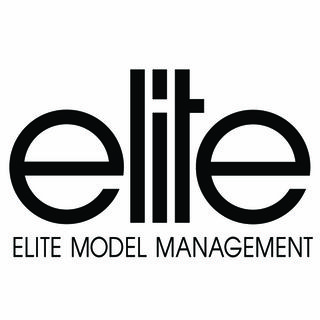Where the supply of us is far larger than the demand, competition amongst models is high. In order to work successfully, clear skin is essential. Although it’s only one part of a model’s “package,” if you don’t have it, it can prevent you from getting placement, booking jobs, and maintaining your confidence.
From magazines and instagram selfies, it would seem that all models are blessed with perfect, pore-free skin. I can assure you this isn’t the case. Many models suffer from acne — including top models. In an interview with Into The Gloss, Brazilian supermodel Caroline Trentini described how she suffered from acne:
«I had really bad skin at the very beginning of my career, when I was fifteen, and that really bothered me. When you’re a girl, and especially because I’m a model, it sucks, you know? I was so self-conscious; I’d look in the mirror and cry. It was really painful. I took Accutane for a while and that helped. It’s a strong thing but it really changed my life.»
Caroline’s interview really resonated with me. Like her, my skin was not even close to perfect. There’s nothing more debilitating than working tirelessly to achieve something and fail. I did everything I could to clear-up my skin and it wasn’t enough; the pimples just kept coming. That lack of control over something can be so frustrating that it’s crippling.
For example, although weight loss may take time, if you honestly work hard and put in the effort, you’ll slowly see results. But when it comes to your skin, there’s only so much you can do. Hormones and genetics are huge parts of why you may suffer from acne. Even by eating healthy, drinking water, and exercising, it’s not always enough. It wasn’t for me. The most difficult acne is caused by bacteria in your skin, not just poor diet and dehydration.
My acne began to cause me not only physical discomfort, but mental and emotional as well. An unnecessary remark from a not-so-sensitive makeup artist can become annoying to say the least. In this industry, it’s of paramount importance that you take absolutely nothing personally, but everyone has their breaking point.
Mine wasn’t my skin was being judged, but when my character was being judged. Just because a model has pimples, doesn’t mean they don’t care for their skin. I can say with full confidence that those with zits care even too much about their skin. And that was me. So when I had a makeup artist essentially question my professionalism or commitment to my job because of my imperfect complexion, that hit a nerve. And the tears began.
What’s even worse, is when the girl in the chair next to you is getting fawned over even though you know she went out the night before and came stumbling to set with an Egg McMuffin wrapper stuffed in her bag. On the other hand, you called it an early night, ate healthily, and worked out, and still woke-up with a fabulous cyst on your forehead.
I literally exhausted every option: blue light therapy, cortisone injections, minocin, minocycline, doxycycline, benzamycin, clindamycin, facials, and every single three-step program and over-the-counter product you can think of. Nothing worked. My father even suggested that I try at home treatments, such as rubbing a tomato on my face (an Eastern European remedy I think) as well as toothpaste and rubbing alcohol for spot treatment. Had it worked, I wouldn’t have minded looking like an absolute idiot, but it didn’t.
So finally, I bit the bullet and I started Accutane.
Roche, the producer of Accutane, explains in the packaging that it’s «a medicine (tretinoin; a Vitamin A derivative) used to treat severe acne that cannot be cleared up by other acne treatments, including antibiotics […] It is believed to act on the sebaceous glands to reduce sebum excretion.» (Roche) In addition to that, it takes a huge hit on your liver.
In my first month on Accutane, I took 40 mg every other day so the side effects were less severe. By the second or third month, I took 40 mg every day. The type of dosage your dermatologist will give you depends on the severity of your acne and can range from 10mg to upwards of 100mg. The higher the dose, the more likely you are to experience the potential side effects (see below).
For a Canadian, a month’s worth of Accutane (depending if you take it everyday or every other day) is around $80.00 CDN. Although it may seem expensive, the cost of the products and procedures I had previously tried far outweighed the cost of my whole Accutane treatment.
I went on Accutane for myself, not just for the sake of my job. Even though it did play a role, the sake of my sanity is what ultimately made me go on Accutane. Being able to wake up without hiding under a mask of foundation and not being embarrassed to show up on set is something I never take for granted.
Although the physical repercussions were annoying (I couldn’t go an hour without water and my lip balm was my new best friend), mentally, I found Accutane to make me feel (almost ironically) more stable. I was doing everything I could do to help my skin in the long run and that gave me peace of mind. Maybe it was blind faith, but I believed it would work and it did.
My only regret? That I didn’t start it sooner.
Even though Accutane worked for me, it’s important for you to be aware there are some potentially harmful side effects you can expect if you decide to take the medication. Some Accutane users have admitted to going absolutely bonkers off the medication from loss of focus; some even experienced crying spells.
Before you start Accutane, be sure to go over all potential side effects with your dermatologist so you’re aware of what you’re getting yourself into. The Accutane package also comes with an information pamphlet everyone should read over. Although most of the side effects are physical, there are potential emotional and mental side effects you may develop.
Here is a list of physical side effects you should expect:
Severe Dryness
Accutane is a very drying medication and the areas most affected (apart from your skin itself) are your nostrils, eyes, and lips. You may also develop rough patches on your skin or experience flaking, especially on your nose or chin.
Nosebleeds
In the beginning stages of Accutane, you may experience a couple nosebleeds due to the dryness in your nostrils. This symptom usually goes away after a couple months.
Dry and/or Red Eyes
Dry Mouth/Throat
Mental Side Effects
The list of potential mental side effects are extensive, including but not limited to: depression, crying spells, having trouble concentrating, withdrawing from family and friends, etc.
For more information on these side effects and more, please talk to your dermatologist, research online, and read the insert that comes with the medication.
Note: An initial breakout (usually occurs after about one month) is inevitable and is a part of the process but don’t quit! Accutane takes time and adjusting but the symptoms do become more manageable and your skin will get better.
While on Accutane, I have found the following helpful in keeping the side effects to a minimum and as under control as possible:
Eye drops
As mentioned previously, Accutane is a very drying medication and dry or red eyes are one of the most common side effects. Carrying around a bottle of eye drops such as Visine can help alleviate dryness and/or redness. I strongly recommend you carry a bottle with you everyday, especially if you’re going to be taking a flight(s).
Supplements
Taking supplements such as Fish Oil and Vitamin E can help heal the skin quicker and at the very least, lessen side effects.
Note: If you decide to take supplements, don’t take Vitamin A because it has many of the same side effects as Accutane and can increase your chance of getting them.
Gentle Cleansers
While on Accutane, your skin will become very sensitive. It’s a good idea to switch from any abrasive or drying facial cleansers (such as those containing benzoyl peroxide) in favour of gentle, non-drying cleansers, such as Cetaphil and CeraVe.
Lip Balm
Cracked and dry lips is one of the most common complaints. If you find that your lips begin to peel, use a toothbrush to gently brush the skin off and be sure to have a tube of heavy duty lip balm on hand. From my experience, Aquaphor and Carmex were the most effective.
Heavy Duty Moisturizer or Oil
Your skin is going to start flaking, so after you cleanse – and I cannot stress this enough — be sure to moisturize! Avene and Cetaphil have great, gentle moisturizers. Or if you find that your skin is still very dry, consider using coconut, emu, or rosehip oil. Apply a thin layer of emu or rosehip oil as a serum followed by some coconut oil over night (coconut oil is not recommended for day use).
Nasal Spray
Since Accutane is super drying, you may find that your nose becomes particularly dry — so much so that you may have an occasional nosebleed. You might also find you start to develop dark circles due to congestion so it’s a good idea to use a nasal spray to help keep your nasal passage lubricated. By doing so, you’ll be able to breathe better and feel more comfortable and fresh.
Water
Hydration is essential! While on Accutane, consider increasing your water intake up to 3L per day. As mentioned previously, Accutane is very drying so you’re going to want to drink a lot of water every day in order to be properly hydrated.
Avoid Alcohol
Accutane takes a huge hit on your liver. As such, you should avoid consuming alcohol as much as possible/completely.
Sunscreen (SPF)
Taking Accutane makes your skin much more sensitive to sunlight. Be sure to wear a minimum of SPF15 daily.
No Waxing
Do not wax your eyebrows or upper lip. Doing so will cause the skin to rip off and it’s nothing short of painful. Trust me, I am speaking from experience.
Optimistic Attitude
I think by being optimistic and thinking of the end goal, clear skin, I didn’t really focus too much on the physical side effects, which made the entire process easier to manage. Hang in there, it’ll be worth it.
Note: Don’t stop taking your pills just because your skin gets better! It’s imperative you finish your 3-6 month course in order for the Accutane to take full effect; as well as to avoid having to do a second treatment.
If you do choose to go on Accutane, I hope you take this piece into consideration and take the time to make a conscious decision. Remember, this is your choice, nobody else’s. Accutane is a tough medication, but it can be your answer. It was for me. If you’ve recently started your Accutane treatment, I wish you the best of luck on your journey to what will hopefully be the beautiful skin you want and deserve.
Have a story about Accutane? What was your experience like? Leave a comment below or e-mail us, we would love to hear your stories!






